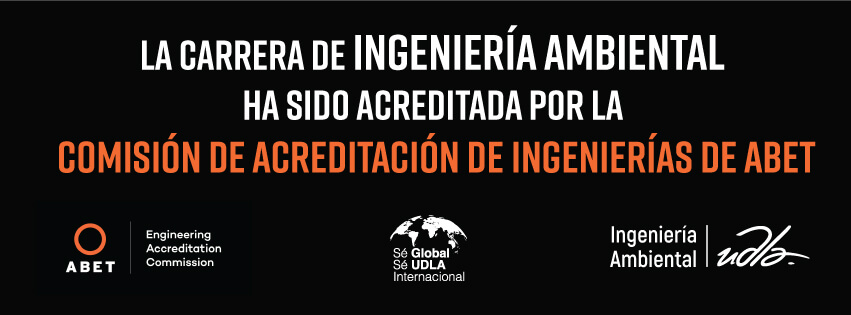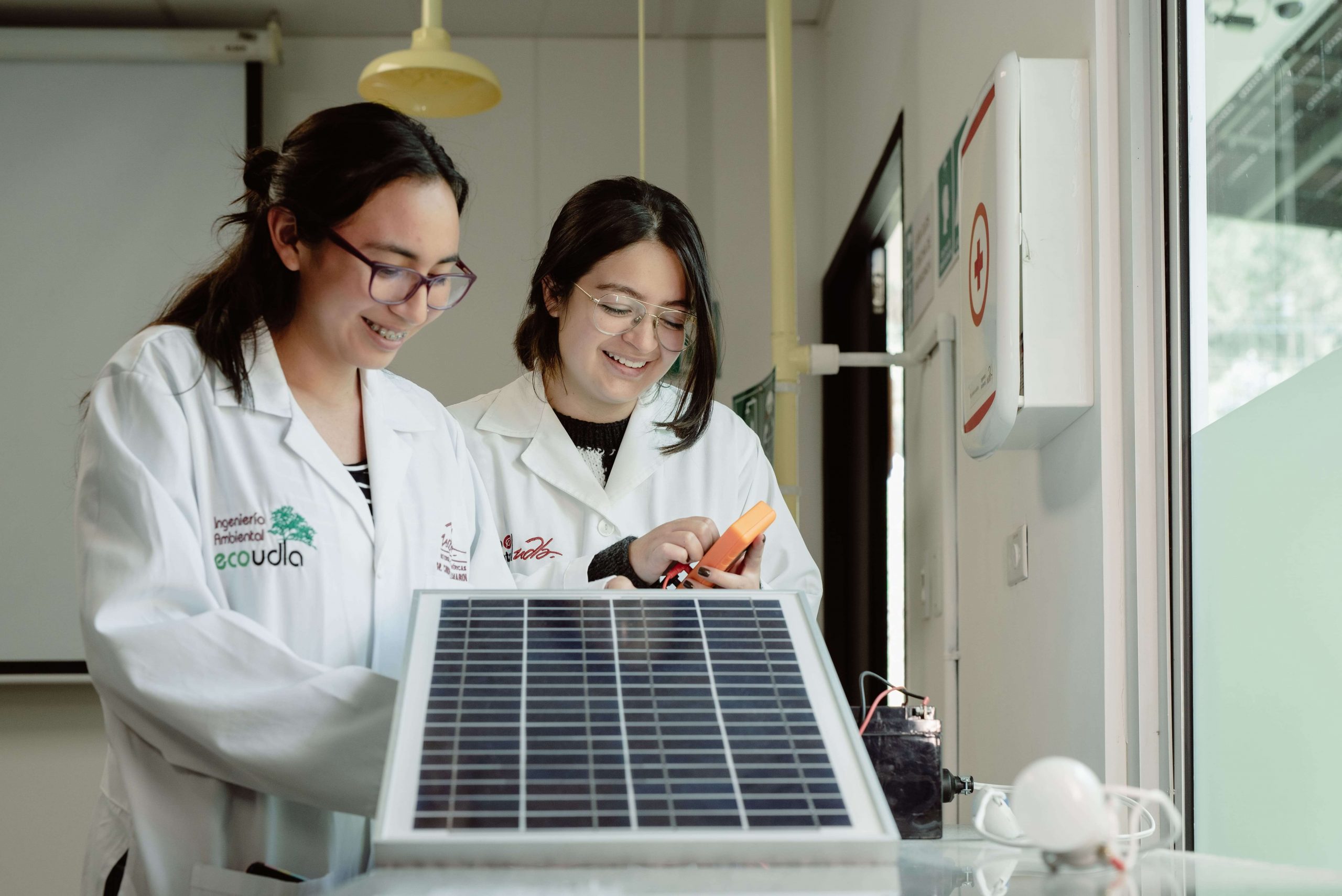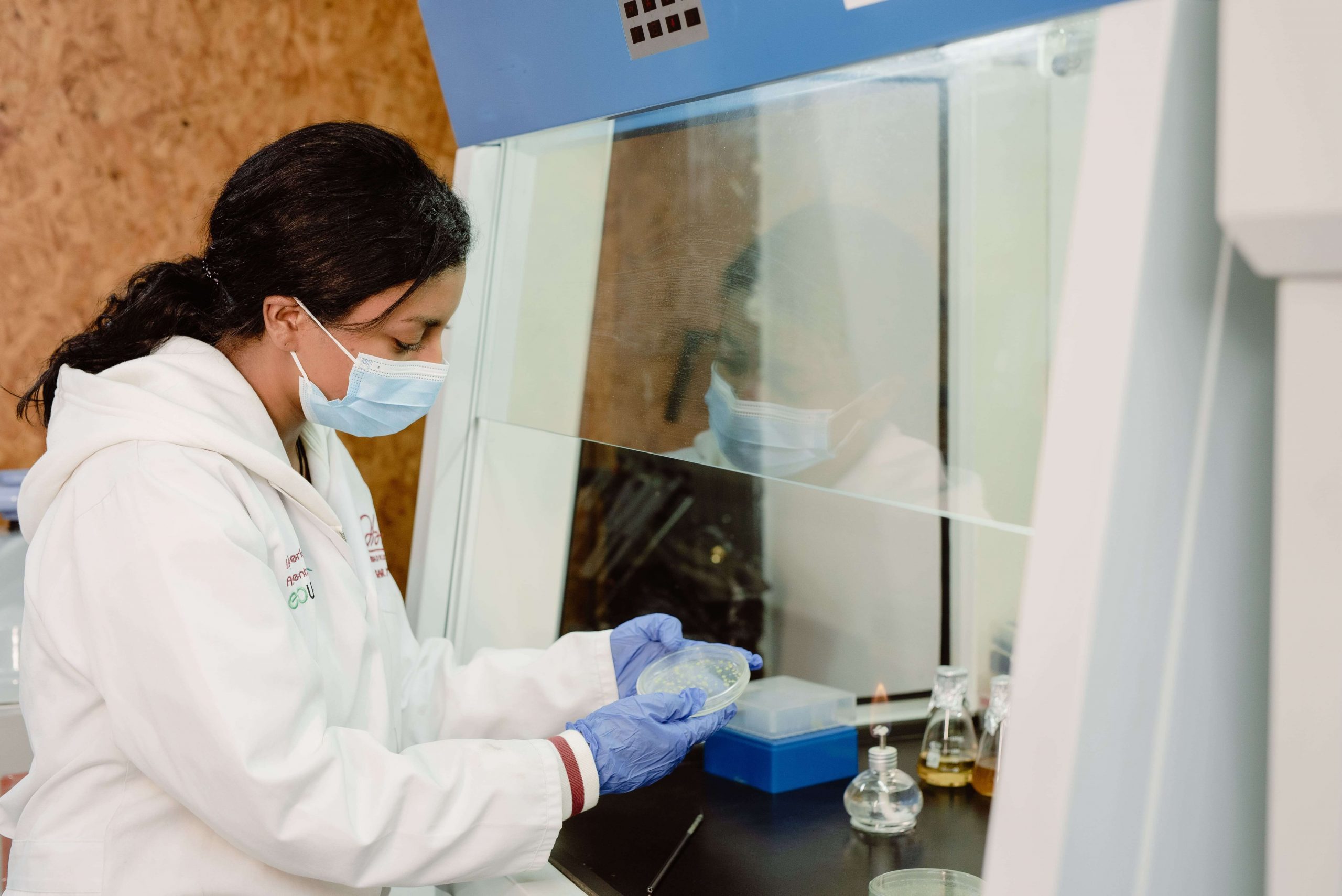Title: Bachelor in Environmental Engineering.
Duration: 9 semesters.
Modality: On site.
** The curriculum may be subject to changes.
The Bachelor in Environmental Engineering program aims to prepare graduates with the skills necessary to propose innovative solutions to the problems of environmental risk through the analysis of the behavior of pollutants and the application of environmental technologies in accordance with national and international regulations. Through the analysis of physical, chemical, and biological parameters, graduates will be able to diagnose environmental problems in water, soil, air, and biota. They will be able to analyze the behavior of pollutants through mathematical models and designs and engineering processes through the implementation of applied research, qualitatively and quantitatively interpreting experimental data. They will also be able to design, direct, and participate in prevention, conservation, and environmental remediation projects using the environmental methods and technologies applied in industry and in urban and rural communities.
The Environmental Engineer from UDLA is expected to work in multidisciplinary teams, respecting the gender and cultural identity of the collective groups that require the inclusion of environmental technology, demonstrating professional ethics and environmental awareness.
Laboratories for water, soil, pollution, and remediation studies, simulation software for contaminant transport processes and watershed management, conservation management practices at the university’s experimental farm in Nono, and field trips throughout Ecuador, UDLA´s own wastewater treatment plant.
Pre-professional internships in the public (organizations responsible for environmental control) and private (organizations responsible in charge of compliance with environmental regulations and waste treatment systems) sectors
Use software for design and environmental simulation (provide knowledge about integrated management of water resources, pollutant behavior, and planning with geographic information systems)
Identify, formulate, and solve complex engineering problems; apply engineering design to produce solutions that meet specified needs; communicate effectively with a range of audiences; recognize ethical and professional responsibilities in engineering situations; function effectively on a team whose members together provide leadership; develop and conduct appropriate experimentation and acquire; and acquire new knowledge as needed.
Environmental Engineering graduates can work in the following sectors and/or roles:
- Industrial, food, chemical, textile, petrochemical, mining, agricultural and manufacturing.
- Sustainability Manager/Director in Organizations.
- Entrepreneur in new green businesses.
- Environmental consultant.
- Environmental auditor.
- Health, safety, and environmental coordinator/manager.
- Environmental auditor and expert witness.
- Management of environmental departments/water and sanitation/climate change/circular economy.
- Design and operation of landfills, wastewater treatment plants, bioremediation processes.
- Natural resource conservation and protection programs.
- Integrated water resource management.
- Energy efficiency management and cleaner production.
- Climate financing/environmental and social risk assessment
An Environmental Engineer from Universidad de Las Américas (UDLA) is a competent, enterprising professional with an international-global vision who proposes innovative engineering solutions to environmental problems by applying sustainable and environmentally friendly technologies, in accordance with national and international regulations.
Graduates are able to identify, formulate, and solve complex problems through the application of engineering principles, science, and mathematics. They apply environmental engineering designs to produce solutions that meet specific needs, taking into account the fields of public health, safety and welfare, as well as global, cultural, social, environmental, and economic factors. They also communicated effectively with a wide range of audiences specific to their discipline. Furthermore, they recognize ethical and professional responsibilities in engineering situations and make informed judgments, considering the impact of engineering solutions in global, economic, environmental, and social contexts. Moreover, they work effectively in a team whose members, together, exercise leadership, create a collaborative and inclusive environment, set and accomplish goals, and plan tasks. Finally, they develop and conduct experiments, analyze and interpret data, use engineering judgment to draw conclusions, and acquire and apply new knowledge as needed using appropriate learning strategies.
Graduates are expected to lead diverse multidisciplinary work teams in national and international contexts and to conduct themselves in an ethical manner exhibiting environmental consciousness, always respecting the gender and cultural identities of collective groups that call for the inclusion of environmental technology.
- Implement viable technical solutions for environmental engineering and management.
- Demonstrate competence, effective participation and leadership in multidisciplinary teams to manage environmental engineering projects.
- Expand their knowledge and expertise to strengthen their professional skills throughout life.
- Add value to organizations by exercising their profession with values and ethical principles.
A graduate of the Environmental Engineering program will be able to:
- Identify, formulate, and solve complex engineering problems by applying principles of engineering, science, and mathematics.
- Apply engineering design to produce solutions that meet specified needs with consideration of public health, safety, and welfare, as well as global, cultural, social, environmental, and economic factors.
- Communicate effectively with a range of audiences within the field.
- Recognize ethical and professional responsibilities in engineering situations and make informed judgments, which must consider the impact of engineering solutions in global, economic, environmental, and societal contexts.
- Function effectively on a team whose members together provide leadership, create a collaborative and inclusive environment, establish goals, plan tasks, and meet objectives.
- Develop and conduct appropriate experimentation, analyze, and interpret data, and use engineering judgment to draw conclusions.
- Acquire and apply new knowledge as needed, using appropriate learning strategies.
This committee addresses issues related to the fulfillment of the educational objectives, degree profile, and other academic aspects linked to the program’s development.
Responsibilities:
- Review the program’s educational objectives, degree profile, student learning outcomes, and plan of study.
- Propose changes or recommendations for the program’s educational objectives, degree profile, student learning outcomes, and plan of study.
- Review the results of the program annual operating plan.
- Review the program review report and action plan.
Committee Structure:
Description | Committee Members |
Dean of the College or its delegate | Diego Buenaño |
Highest authority of the program or its delegate | Alejandro González |
Professor in charge of graduate follow-up | Daniel Hidalgo |
Representatives of employers and/or representatives of professional associations or guilds | Juan Carlos Avilés (President) |
Pablo Macías | |
Carla Muñoz | |
Carlos Banchón | |
Graduates |
|
Andrés Argüello | |
Carlos Endara | |
Camila Sáenz | |
Pavlova Sigcha |
Bachelor Enrollment
| Academic Year | 2018 | 2019 | 2020 | 2021 | 2022 |
| Number of Students | 233 | 210 | 171 | 132 | 75 |
Bachelor Degrees Awarded
| Academic Year | 2018 | 2019 | 2020 | 2021 | 2022 |
| Number of Students | 53 | 41 | 51 | 57 | 52 |

ABET is a global accreditor of university programs in applied and natural sciences, computing, engineering, and engineering technology.
ABET accreditation ensures that programs meet the standards to produce graduates ready to enter critical technical fields that are leading innovation and emerging technologies, anticipating the welfare and safety needs of society.
What benefits do students pursuing ABET-accredited programs have?
- Enhanced opportunities to access national and international employment.
- Facilitated attainment of professional engineering licensure in the United States.
- Instills confidence in the quality of the study programs by establishing international standards.
- Confers international recognition and prestige to graduates, academic programs, as well as UDLA.
- You can find more information about ABET accreditation at https://www.udla.edu.ec/2022/08/las-carreras-de-ingenieria-industrial-y-ambiental-recibe-la-acreditacion-abet/
If you are enrolled in another university, you can have your courses recognized through our simulator and study at UDLA.
Apply here
Gallery






